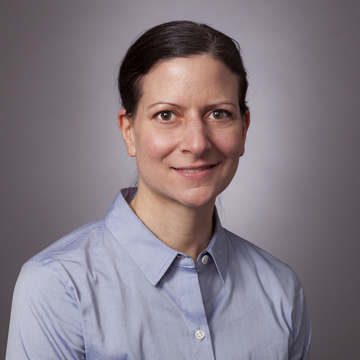Obesity's Hidden Peril: Stigma May Further Health Decline

Here's a double whammy for obese individuals: Not only does extra weight confer health risks such as heart disease and diabetes, a new study suggests the social stigma these individuals face exacerbates physical decline.
The research showed that the moderately obese participants who reported being discriminated against showed a greater physical decline over time, measured by their ability to perform everyday tasks, than did the severely obese who didn't report discrimination.
"Obesity is a physiological issue," said lead researcher Markus Schafer, a doctoral student in sociology and gerontology at Purdue University. "But when people have negative interactions in their social world, including a sense of being discriminated against, it can make matters worse and contribute to a person's declining physical health." [Childhood Obesity Takes Psychological Toll]
The research is detailed in the March 2011 issue of the journal Social Psychology Quarterly.
You're too fat
Schafer and his colleagues analyzed data collected from more than 1,500 people ages 25 to 74, who were surveyed in 1995 and 2005 about issues related to aging and health equality as part of the National Survey of Midlife Development in the United States.
Participants were asked whether they had experienced any discrimination in various social settings — such as the workplace, restaurants and at school — as well as why they thought the discrimination happened. They also indicated whether they felt somewhat overweight, very overweight or not overweight.
Sign up for the Live Science daily newsletter now
Get the world’s most fascinating discoveries delivered straight to your inbox.
While fewer than 5 percent of nonobese participants reported experiencing discrimination, about 11 percent of those who were moderately obese and 33 percent of those who were severely obese reported the same. These were the same individuals who also had the sharpest decline over time in their functional abilities, such as the capacity to climb stairs, or carry everyday items.
"People who are severely obese were more likely than people of recommended weight to face some level of difficulty in doing activities of daily living," Schafer said. "Over 10 years, those odds of disability were nearly five times higher for people who reported some form of weight discrimination, but only twice as high for those who didn't face discrimination."
Constant stress
Schafer offers two possible explanations for the link between weight discrimination and worse health outcomes: The added stress could be keeping individuals in a constant state of arousal that they are likely not aware of but that leads to a cascade of harmful cellular effects. Another idea is that very obese people are self-conscious about their weight and are less likely to exercise and share their exercise goals with others. Exercise has been shown to be most successful when shared with others — a form of accountability.
The underlying feelings about fatness could be the root cause for the stress or withdrawal, the researchers found with statistical models.
No matter their actual weight status, people who said they'd been maltreated due to being fat considered themselves as heavier than those who hadn't faced discrimination. While 7 percent of overweight subjects who didn't report weight discrimination felt very overweight, 20 percent of overweight respondents who perceived discrimination indicated feeling very overweight.
But shouldn't a person who is obese be aware of their status so they can do something about it? In fact, a study published in the December 2010 issue of the journal Obstetrics and Gynecology found that 25 percent of overweight and obese women considered themselves normal weight or underweight. The disconnect could mean overweight individuals who aren't dieting or exercising to get into a healthy weight range, the study scientists said.
While Schafer agrees that obese people shouldn't kid themselves into thinking they are fit and thin, discrimination is not the way to go about notifying them.
"There's a negative and a positive side of recognizing one's own weight status," Schafer told LiveScience. "People do need to be cognizant of the risks entailed by their weight status, but that needs to be shed in a positive light, not in a contemptuous light."
Schafer encourages the national health campaigns that target obesity, such as that spearheaded by Michelle Obama, but he said such messages must be sensitive to obese individuals, and "avoid disparaging statements that would make obese people [feel] ridiculed or vilified," Schafer said.
The next step would be to address weight-based discrimination. "It's no longer acceptable at all to discriminate overtly over people's race or sex but it doesn't seem like there's been any talk about limiting weight-based discrimination," Schafer told LiveScience during a telephone interview.
You can follow LiveScience managing editor on Twitter @jeannabryner.

Jeanna served as editor-in-chief of Live Science. Previously, she was an assistant editor at Scholastic's Science World magazine. Jeanna has an English degree from Salisbury University, a master's degree in biogeochemistry and environmental sciences from the University of Maryland, and a graduate science journalism degree from New York University. She has worked as a biologist in Florida, where she monitored wetlands and did field surveys for endangered species. She also received an ocean sciences journalism fellowship from Woods Hole Oceanographic Institution.
Most Popular



